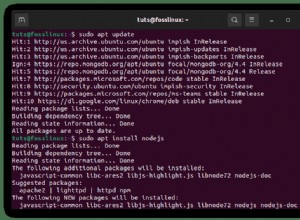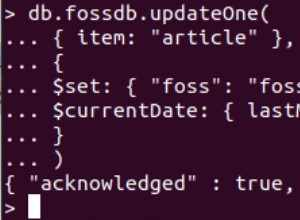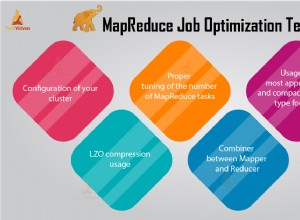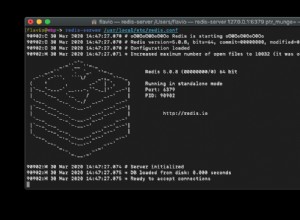Un buon approccio sarebbe quello di suddividere la pipeline aggregata in più fasi con l'obiettivo di calcolare gli aggregati con ciascun gruppo, ovvero aggregati annuali, mensili e settimanali.
Ho fatto un debole tentativo di generare la suddetta pipeline, ma non sono sicuro che sia quello che stai cercando, ma potrei darti alcuni indizi per una soluzione, meglio ancora ottimale. Forse qualcun altro potrebbe dare una risposta migliore.
Considera quanto segue non testato pipeline:
db.statements.aggregate([
{
"$group": {
"_id": {
"name": "$name",
"year": { "$year": "$date" },
"month": { "$month": "$date" },
"week": { "$week": "$date" }
},
"total": { "$sum": "$amount" }
}
},
{
"$group": {
"_id": {
"name": "$_id.name",
"year": "$_id.year"
},
"YearlySpends": { "$push": "$total" },
"totalYearlyAmount": { "$sum": "$total" },
"data": { "$push": "$$ROOT" }
}
},
{ "$unwind": "$data" },
{
"$group": {
"_id": {
"name": "$_id.name",
"month": "$data._id.month"
},
"YearlySpends": { "$first": "$YearlySpends" },
"totalYearlyAmount": { "$first": "$totalYearlyAmount" },
"MonthlySpends": { "$push": "$data.total" },
"totalMonthlyAmount": { "$sum": "$data.total" },
"data": { "$push": "$data" }
}
},
{ "$unwind": "$data" },
{
"$group": {
"_id": {
"name": "$_id.name",
"week": "$data._id.week"
},
"YearlySpends": { "$first": "$YearlySpends" },
"totalYearlyAmount": { "$first": "$totalYearlyAmount" },
"MonthlySpends": { "$first": "$MonthlySpends" },
"totalMonthlyAmount": { "$first": "$totalMonthlyAmount" },
"WeeklySpends": { "$push": "$data.total" },
"totalWeeklyAmount": { "$sum": "$data.total" },
"data": { "$push": "$data" }
}
},
{ "$unwind": "$data" },
{
"$group": {
"_id": "$data._id",
"YearlySpends": { "$first": "$YearlySpends" },
"totalYearlyAmount": { "$first": "$totalYearlyAmount" },
"MonthlySpends": { "$first": "$MonthlySpends" },
"totalMonthlyAmount": { "$first": "$totalMonthlyAmount" },
"WeeklySpends": { "$first": "$WeeklySpends" },
"totalWeeklyAmount": { "$first": "$totalWeeklyAmount" }
}
}
])
Risultato campione
/* 1 */
{
"_id" : {
"name" : "Tesco",
"year" : 2017,
"month" : 3,
"week" : 11
},
"YearlySpends" : [
-3.3
],
"totalYearlyAmount" : -3.3,
"MonthlySpends" : [
-3.3
],
"totalMonthlyAmount" : -3.3,
"WeeklySpends" : [
-3.3
],
"totalWeeklyAmount" : -3.3
}
/* 2 */
{
"_id" : {
"name" : "RINGGO",
"year" : 2017,
"month" : 4,
"week" : 17
},
"YearlySpends" : [
-3.3,
-26.3,
-33.3
],
"totalYearlyAmount" : -62.9,
"MonthlySpends" : [
-33.3
],
"totalMonthlyAmount" : -33.3,
"WeeklySpends" : [
-33.3
],
"totalWeeklyAmount" : -33.3
}
/* 3 */
{
"_id" : {
"name" : "RINGGO",
"year" : 2017,
"month" : 3,
"week" : 12
},
"YearlySpends" : [
-3.3,
-26.3,
-33.3
],
"totalYearlyAmount" : -62.9,
"MonthlySpends" : [
-3.3,
-26.3
],
"totalMonthlyAmount" : -29.6,
"WeeklySpends" : [
-3.3
],
"totalWeeklyAmount" : -3.3
}
/* 4 */
{
"_id" : {
"name" : "RINGGO",
"year" : 2017,
"month" : 3,
"week" : 11
},
"YearlySpends" : [
-3.3,
-26.3,
-33.3
],
"totalYearlyAmount" : -62.9,
"MonthlySpends" : [
-3.3,
-26.3
],
"totalMonthlyAmount" : -29.6,
"WeeklySpends" : [
-26.3
],
"totalWeeklyAmount" : -26.3
}
/* 5 */
{
"_id" : {
"name" : "Sky",
"year" : 2017,
"month" : 3,
"week" : 9
},
"YearlySpends" : [
-63.3
],
"totalYearlyAmount" : -63.3,
"MonthlySpends" : [
-63.3
],
"totalMonthlyAmount" : -63.3,
"WeeklySpends" : [
-63.3
],
"totalWeeklyAmount" : -63.3
}
/* 6 */
{
"_id" : {
"name" : "Amazon",
"year" : 2017,
"month" : 3,
"week" : 12
},
"YearlySpends" : [
-61.3
],
"totalYearlyAmount" : -61.3,
"MonthlySpends" : [
-61.3
],
"totalMonthlyAmount" : -61.3,
"WeeklySpends" : [
-61.3
],
"totalWeeklyAmount" : -61.3
}
AGGIORNAMENTO
Se desideri includere filtri nell'operazione aggregata, ti suggerisco di utilizzare il $match
query come prima fase della pipeline. Tuttavia, se è presente un $corrispondenza
passaggio, i passaggi precedenti verrebbero leggermente modificati poiché aggregherai i risultati filtrati, in modo molto diverso dall'aggregare inizialmente tutti i documenti nel loro insieme e quindi applicare il filtro sui risultati.
Se devi prendere il filtro-prima-poi-aggrega route, considera l'esecuzione di un'operazione aggregata che utilizzi $corrispondenza
come primo passaggio che filtra i documenti per fornitore, quindi un precedente $redact
passaggio della pipeline per filtrare ulteriormente i documenti nella parte del mese del campo della data e quindi il resto sarebbe il $gruppo
fasi:
Statements.aggregate([
{ "$match": { "name": req.params.vendor } },
{
"$redact": {
"$cond": [
{ "$eq": [{ "$month": "$date" }, parseInt(req.params.month) ]},
"$$KEEP",
"$$PRUNE"
]
}
},
.....
/*
add the remaining pipeline steps after
*/
], function(err, data){
if (err) throw err;
console.log(data);
})
Se devi prendere il gruppo-first-then-filter route, il filtro sarebbe dopo l'ultima pipeline che fornisce il risultato raggruppato ma applicato su campi diversi poiché i documenti in quella parte del flusso sarebbero diversi dallo schema originale.
Questo percorso non è performante poiché stai iniziando l'operazione di aggregazione con tutti i documenti nella raccolta e poi filtrando in seguito:
Statements.aggregate([
.....
/*
place the initial pipeline steps from
the original query above here
*/
.....
{
"$match": {
"_id.name": req.params.vendor,
"_id.month": parseInt(req.params.month)
}
}
], function(err, data){
if (err) throw err;
console.log(data);
})
Per più parametri del filtro di data, il $redatta
l'operatore sarebbe
{
"$redact": {
"$cond": [
{
"$and": [
{ "$eq": [{ "$year": "$date" }, parseInt(req.params.year) ]},
{ "$eq": [{ "$month": "$date" }, parseInt(req.params.month) ]},
{ "$eq": [{ "$week": "$date" }, parseInt(req.params.week) ]}
]
},
"$$KEEP",
"$$PRUNE"
]
}
}




